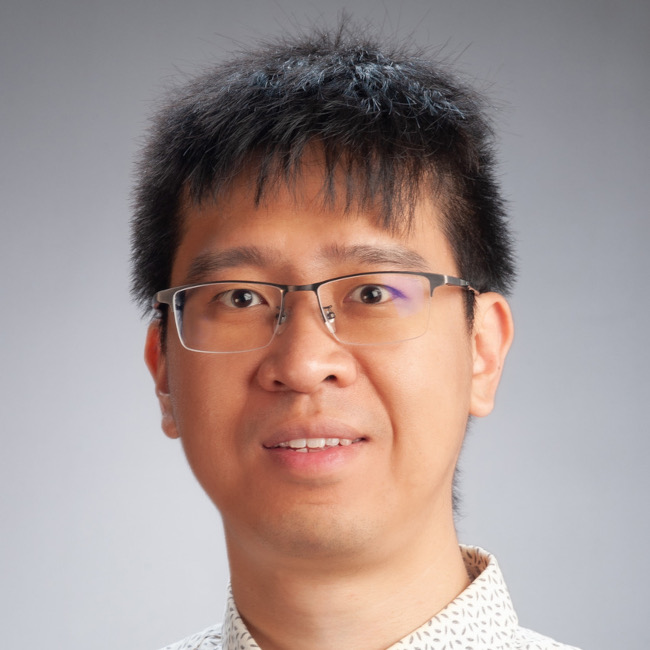COMP102 (2024) - Introduction to Computer Program Design
Prescription
This course introduces the fundamentals of programming in a high-level programming language (Java), using an object-oriented approach to program design. Students develop their programming skills by constructing computer programs for a variety of applications. The course provides a foundation for all later courses in computer science and develops programming skills useful for students in many other disciplines.
Course learning objectives
Students who pass this course should be able to:
- Read, comprehend, design, and construct small programs using the Java programming language and an object-oriented design approach.
Course content
COMP102 course focuses on the design and construction of computer programs. The course forms a basis for later courses in Computer Science and Engineering degree but will also be useful for students who are eager to learn computer programming but do not intend to study this subject at higher levels.
Required Academic Background
None. (Any background in programming is obviously helpful, but is neither expected nor required).
Lecturer
During the semester, there will be two one-and-half-hour lectures (i.e. 2 x 90 minutes sessions) and one one-and-half-hour lab (i.e. 1 x 90 minutes) per week.
Textbook
There is no textbook for this course. All required information will be provided in the lecture slides and during lecture sessions (accessible via the recorded videos)
Additional reading materials (if any) will be provided and referenced in the lecture schedule section.
Assessment
This course will be assessed through the following assessments:
- Six pass/fail assignments (p/f)
- One graded assignment
- One test
- Final examination
| Assessment Item | Due Date or Test Date | Percentage | Additional Information |
|---|
| Attendance | | 10% | |
| pass/fail (p/f) Assignments | | p/f |
To get the full grade in Assignment 7, all six p/f assignments must be passed.
These assignments are formative. A substantial attempt on a p/f assignment which receives a fail grade can be redone once, and regraded in a lab.
For a p/f assignment to be regraded, the attempt must be substantial. If there is no submission or submission is very limited, the assignment will receive a final fail grade. |
| Assignment 7 | Week 15 | 30% | The overall grade for assignment 7 (30%) will be capped according to the number of pass assignments submitted (see below).
- Passed 6 pass/fail assignments: Max 100% (30/30)
- Passed 4 or 5 pass/fail assignments: Max 80% (24/30)
- Passed 2 or 3 pass/fail assignments: Max 60% (18/30)
- Passed 1 pass/fail assignments: Max 50% (15/30)
- Passed 0 pass/fail assignments: Max 40% (12/30)
|
| Test | Week 8 | 20% | 1 Hour (60 Minutes) |
| Final Exam | Exam period | 40% | 2 hours (120 Minutes) |
Note: If you fail the course the first time and need to take the make-up exam, the make-up exam will only be part of your final grade - your final grade will be 40% of your coursework marks and 60% from the make-up exam.
Late Days & Penalties
Each student will have ONE "LATE DAY" (24 hours) of automatic extension which will be applied to any assignment(s) during the course, as needed. Please note that these 24 hours are for the entire course, not for each assignment. So you have, on average 3 late hours for each assignment. There will be no penalty applied for these hours. You do not need to apply for them, instead any late hours you have left will be automatically applied to assignments that you submit late. You get zero marks for late assignments when you run out of these late hours, unless you have made pre-arrangements on the basis of exceptional circumstances with the course coordinator.
Assignments submitted after the solutions are made available will not be marked, unless you have made pre-arrangements based on exceptional circumstances with the course coordinator.
Submission & Return
Students are not allowed to use AI tools (ChatGPT, Bing Chat, Github Copilot, Google Bard, Moonbeam, etc... ) to generate submitted material or complete coursework in this course.
Submission of assignments must be done via the ECS online submission system, accessible through the 'Assignments' link on the course web pages:
https://ecs.wgtn.ac.nz/Courses/XMUT102_2024T2. Marks and comments will be returned through the ECS marking system, also available through the course web pages.
Group Work
Students may work in pairs on the pass/fail assignments as long as they declare who they worked with on the assignment. The graded assignment (Assignment 7) must be worked on individually.
Workload
COMP102 has a nominal total workload of 150 hours. In order to pass COMP102, you should spend at least 11-12 hours per week on this course. An approximate breakdown for these hours would be:
- Lectures: 3 hours
- Lab Sessions: 1.5 hours
- Reading, preparation and reviewing videos: 2 hours
- Working on the assignment outside the lab session: 5 hours
Teaching Plan
See the 'Schedule' link on the course web pages:
https://ecs.wgtn.ac.nz/Courses/XMUT102_2024T2/CourseSchedule
The primary means of communication outside of the lecture will be the COMP102 website accessible at
https://ecs.wgtn.ac.nz/Courses/XMUT102_2024T2 . Make sure to bookmark the course home page since you will be accessing it frequently.
The course website has the important information about the course, including:
- Announcements,
- Course schedule (with links to copies of the lecture slides and additional reading materials (if any)),
- Files and assignments-related information,
- Assignment submission system.
There is also a WeChat group. The lecturer(s) will answer questions on WeChat and may make urgent announcements. All communications in the WeChat room must be in English.
Academic Integrity and Plagiarism
Academic integrity means that university staff and students, in their teaching and learning, are expected to treat others honestly, fairly and with respect at all times. It is unacceptable to submit any work that someone else did and claim that it is your own work.
Plagiarism is presenting someone else's work as if it were your own, whether you mean to or not. "Someone else's work" means anything that is not your own idea. Even if it is presented in your own style, you must acknowledge your sources fully and appropriately. This includes:
- The work of other students or staff
- Material from books, journals or any other printed source
- Information from the internet
- Software programs and other electronic material
You must always properly cite any work of others that you include in your submition. If you are ever in doubt as to whether some action you have taken may be considered plagiarism, you should consult your lecturer and/or clearly state on the submitted work the extent of the contribution from others.
Strictly follow the rules below:
- Do not give your answers to other students – you may get zero!
- If someone submits work that is the same as or very similar to yours, you should expect to be asked to explain and, if the explanation is not satisfactory, to receive zero mark for the assessment and/or the course, if repeated.
- Do not copy another student’s work (assignment/test/final exam), you will get zero.
- Do not ask other students for their answers – it is stealing their marks. You may both get zero.
Plagiarism and Code
If you are completing a programming project, you may be allowed to use code segments from a software library on the web, from model solutions in previous courses you have taken, or even from other students. If you do this, you must clearly indicate all of the code that has come from another source and state the source. You are not required to cite code provided with the assignment or from lecture notes. If you are in doubt about the use of code that you have not written yourself you should check with your lecturer before submitting the program. If you have had help from someone else (other than a tutor), it is always safe to state the help that you got. For example, if you had help from someone else in writing a component of your code, it is not plagiarism as long as you state (eg, as a comment in the code) who helped you in writing the method.
Classroom Policies
- No eating, drinking, or smoking.
- Respect classmates’ ideas, opinions, and questions.
- No behaviour that prevents other students from learning.
- You are welcome to visit the instructor’s office during his office hours.
- Take good care of the laboratory facilities.


